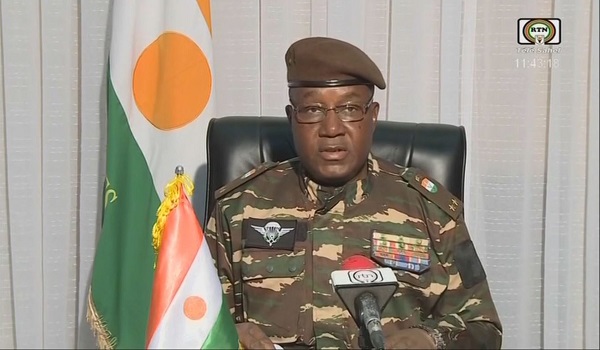In a startling turn of events, Niger’s new military rulers have accused France, a long-standing ally of the country, of unilaterally releasing captured terrorists, commonly referred to as jihadists, and breaching Niger’s airspace. The accusation comes amidst rising tensions between the two nations and has raised concerns about the stability of the region.
The military regime, known as the National Council for the Safeguard of the Homeland (CNSP), issued a statement on Wednesday alleging that France had freed a number of jihadists who subsequently gathered to plan an attack on military positions in the tri-border area where Niger, Burkina Faso, and Mali converge. The statement labeled the situation as of “extreme gravity” and blamed the behavior of French forces and their allies for the unfolding events.
While the statement did not directly link the alleged jihadist release to a subsequent attack, it reported an assault on a National Guard position near a gold mine in western Niger. The attack targeted a position in the locality of Bourkou Bourkou, putting into question the security situation in the region.
Amidst the escalating tensions, the military regime called on security forces to elevate their alert levels and urged the public to remain vigilant. Additionally, the regime accused France of allowing a military plane to violate Niger’s airspace by entering from neighboring Chad, a move that defied a ban imposed just days earlier.
France, which has maintained a military presence of approximately 1,500 troops in Niger, has been a key partner in the country’s fight against jihadist groups that crossed over from Mali in 2015. However, relations between the two nations soured after President Mohamed Bazoum, a French ally, was ousted from power by members of his guard in late July.
These accusations come at a critical juncture, as the Economic Community of West African States (ECOWAS) is set to convene a summit to address the Niger crisis. ECOWAS had issued an ultimatum to the coup leaders, demanding the reinstatement of President Bazoum or facing the threat of military intervention.
The situation has raised concerns about the stability of Niger and the broader region, as tensions between the military rulers and France continue to escalate. The allegations highlight the complex geopolitical dynamics at play and the challenges in addressing security and governance issues in the region.









